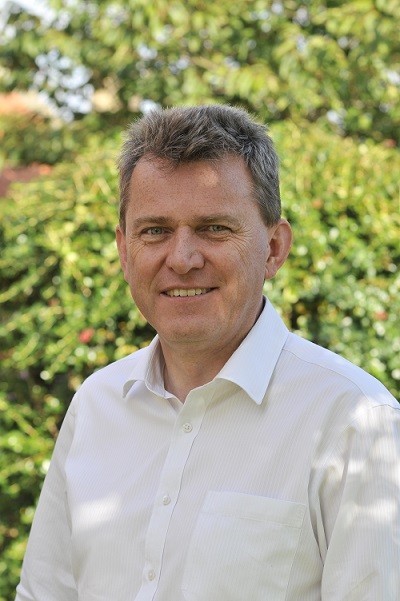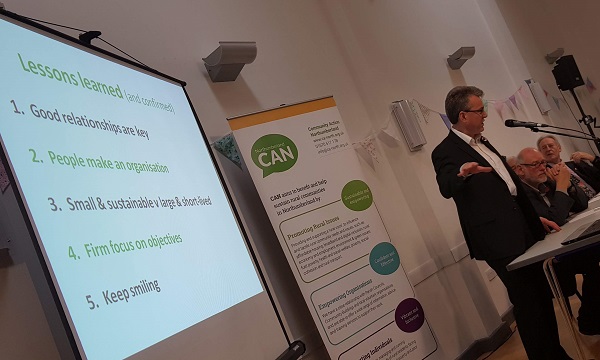Andy's blog: 5 lessons learned as CEO
8th Nov 2018

By Andy Dean, CEO of CAN
Back in the autumn of 2015, after 3 months as Chief Exec at CAN, I offered a few reflections on the opportunities and challenges going forward. After a further 3 years in the role, it is interesting to reflect again on these words. Back in 2015, I said:
“Leading CAN in its role to support the rural communities of Northumberland is a great privilege. Creative staff, progressive trustees and CAN’s track record stretching back to the 1950s provide fantastic building blocks.
“The environment, of course, is hugely challenging. Shrinking public finances and the inevitable service reductions which ensue are presenting challenges to rural areas more than any other. Having worked in Northumberland wearing various hats for over 20 years, there has certainly never been a time quite like this.
“However, Northumberland and CAN have much to build on. The connection between people and their environment is palpable in Northumberland and the spirit of enterprise and self-help is strong. There is a genuine passion coursing through Northumberland, not only to protect what is valued but to capitalise on strengths, innovate and create truly sustainable communities.”
The first of these paragraphs absolutely holds true. The CAN staff team, augmented recently by our Energy Advisor and Work Coaches, are truly brilliant. Knowledgeable, passionate and focussed on making a difference, I couldn’t ask for more. CAN’s trustees too are 100 per cent committed to our objectives, always supportive and providing a robust challenge to make sure we remain focussed on why we exist – to meet the needs of Northumberland’s communities.
The second paragraph is also true except, of course, we can add more challenges to the list we faced in 2015 – not least the uncertain impact of Brexit.
As for the third paragraph, after three years I wouldn’t change a word.
CAN has come a long way in three years. We have diversified our income streams and returned to financial viability, making a small annual surplus since 2016. We have enhanced our staff capacity by increasing the hours of existing staff where possible and taking on additional seconded and contracted staff. We have built on the things we are good at and developed fantastic new activities to meet local needs.
 My five key learning points
My five key learning points
Personally, I have learnt a great deal as well as confirming a number of previous lessons. If I was pushed to highlight 5 key learning points these would be:
- Good relationships are the key to anything positive.
Trust has to be earned but it is a powerful commodity. Whether it is between staff and trustees or between CAN and other organisations, positive relationships are fundamental to making a sustained difference. - Regardless of the organisation, it is the people that make it what it is.
Get the right people, release their strengths and support creativity (and challenge) and success is highly likely – as long as you are well organised. - Small scale sustainability always trumps large scale, short-lived projects.
We have all seen large scale, time limited initiatives come and go. Often these can actually undermine existing local initiatives rather than build on them and support their sustainability. That doesn’t mean that coordinating a range of more local projects and activities isn’t a good idea. That is just what we have done with a number of our activities such as Warm Hubs, village hall/community building support and Community-led Housing. However, whilst using our coordinating role to promote additional activity and access more resources, in every case we are supporting local organisations and people to deliver. - Charities must maintain a firm focus on their objectives in everything they do.
This can be difficult given the pressures to generate income and maintain organisational viability - this goes for public sector organisations and private businesses too. I would argue that keeping a close eye on the ‘core business’ is essential in maintaining the purpose of any organisation. Stray from this and the purpose of the organisation’s existence disappears. - Keep smiling.
This may sound a little flippant but everyone needs and deserves to enjoy what they do. That’s when we are at our best and when we achieve the most. This can often feel difficult when so many circumstances and events are beyond our control. However, as a charity working for others, it is, perhaps, easier to smile when we see the real impact of our efforts.